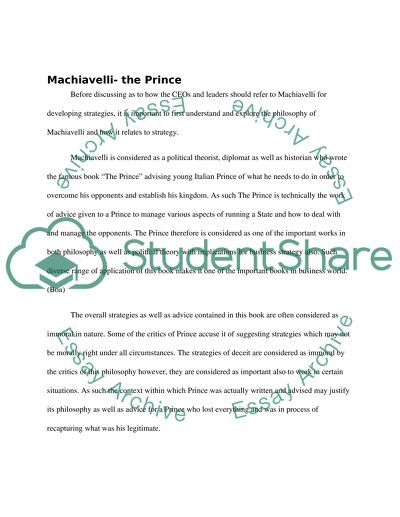Cite this document
(“Should CEOs turn to Machiavelli for business strategies Essay”, n.d.)
Should CEOs turn to Machiavelli for business strategies Essay. Retrieved from https://studentshare.org/english/1494399-should-ceos-turn-to-machiavelli-for-business
Should CEOs turn to Machiavelli for business strategies Essay. Retrieved from https://studentshare.org/english/1494399-should-ceos-turn-to-machiavelli-for-business
(Should CEOs Turn to Machiavelli for Business Strategies Essay)
Should CEOs Turn to Machiavelli for Business Strategies Essay. https://studentshare.org/english/1494399-should-ceos-turn-to-machiavelli-for-business.
Should CEOs Turn to Machiavelli for Business Strategies Essay. https://studentshare.org/english/1494399-should-ceos-turn-to-machiavelli-for-business.
“Should CEOs Turn to Machiavelli for Business Strategies Essay”, n.d. https://studentshare.org/english/1494399-should-ceos-turn-to-machiavelli-for-business.


